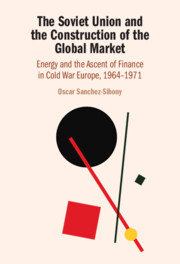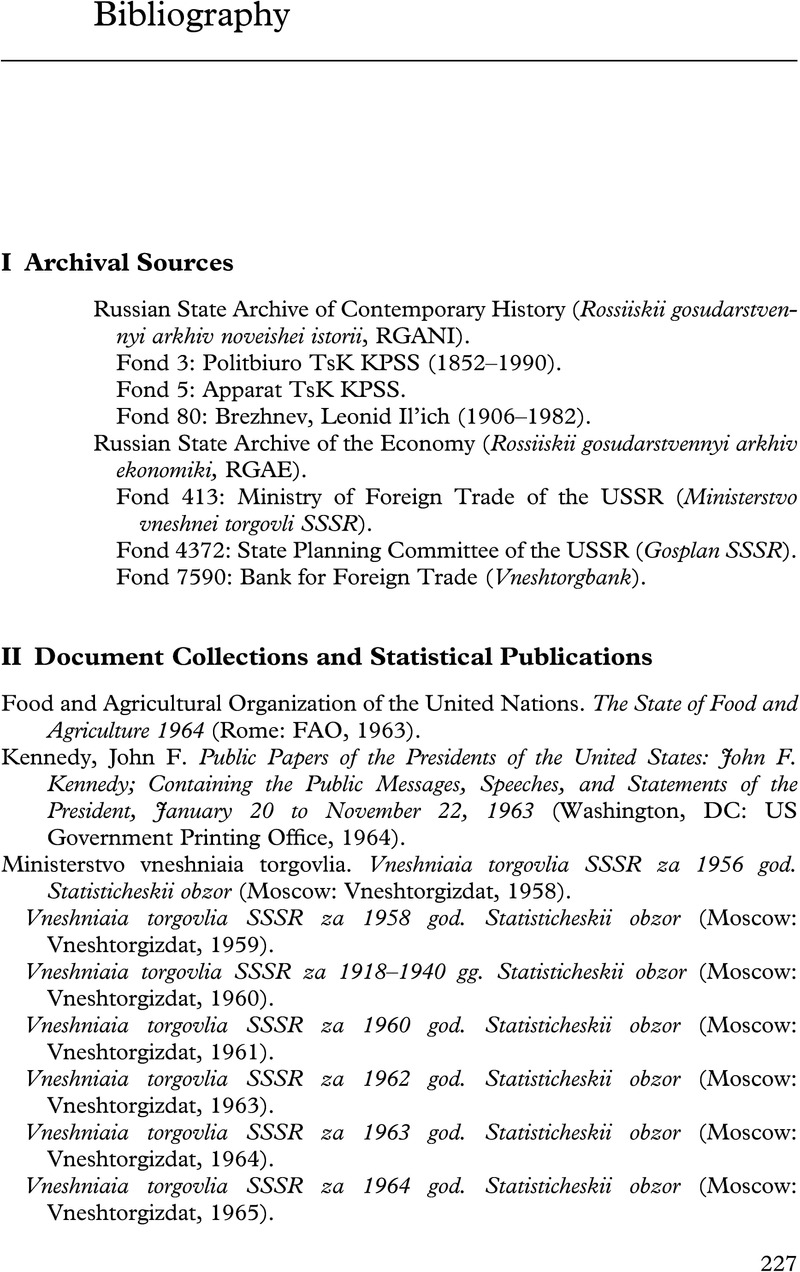 The Soviet Union and the Construction of the Global Market
The Soviet Union and the Construction of the Global Market Book contents
Bibliography
Published online by Cambridge University Press: 31 August 2023
Summary

- Type
- Chapter
- Information
- The Soviet Union and the Construction of the Global MarketEnergy and the Ascent of Finance in Cold War Europe, 1964–1971, pp. 227 - 238Publisher: Cambridge University PressPrint publication year: 2023


